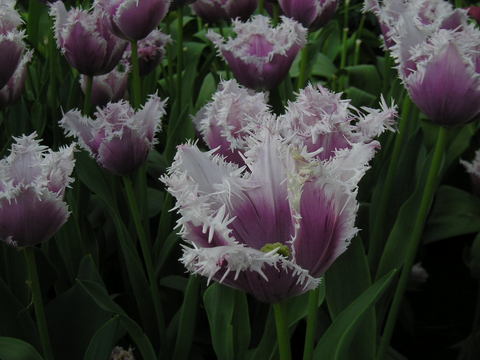





Q: I am a novice gardener and am quite pleased with the tulips I planted last fall, which bloomed beautifully three weeks ago. However, your April Garden Calendar advised digging up and discarding the bulbs after blooming. Do tulips not come back every year? Do I have to replant new bulbs every fall?
A: You’ll be heartened to know that my own mother questioned my advice. She says that her tulips have bloomed regularly in the same spot for three years. I make it a habit never to argue with success but I will say that tulips are not ordinarily perennial in Atlanta. In order for tulips to flower strongly from year to year, they must grow in cool temperatures but bright sunshine for two months after flowering. If you know Georgia weather, you know that isn’t what we have in May. In summer heat, the leaves fade away and fail to absorb the energy they need to produce flowers the next spring. Thus my April advice.
However, if you want to experiment, all is not lost. Next fall excavate a bulb planting area twelve inches deep. Discard half the soil you bring out; mix the other half 1:1:1 with soil conditioner and gritty sand. Re-fill your bed area halfway with this mixture.
Position the tulips on the loose soil, scatter a tablespoon of bone meal around each one and finish filling the hole with your soil mixture. By doing this you will give the tulips good drainage below the bulbs and a cool place in which to grow. The best site for them would be bright shade – – never full sunshine.
On the Internet, www.dutchbulbs.com recommends for the South Queen of the Night, Maureen and Pink Diamond as well as species tulips like Tulipa clusiana ‘Cynthia’ and T. bakeri ‘Lilac Wonder’. They go on to say that Darwin hybrid tulips, lily-flowered tulips and parrot tulips (all three available in local garden stores) should be treated as annuals.
Some excellent research on how to perennialize tulips and daffodils was done a few years ago by Paul Nelson at the University of North Carolina. I highly recommend you review his easy-to-understand findings.

Copyright © www.100flowers.win Botanic Garden All Rights Reserved